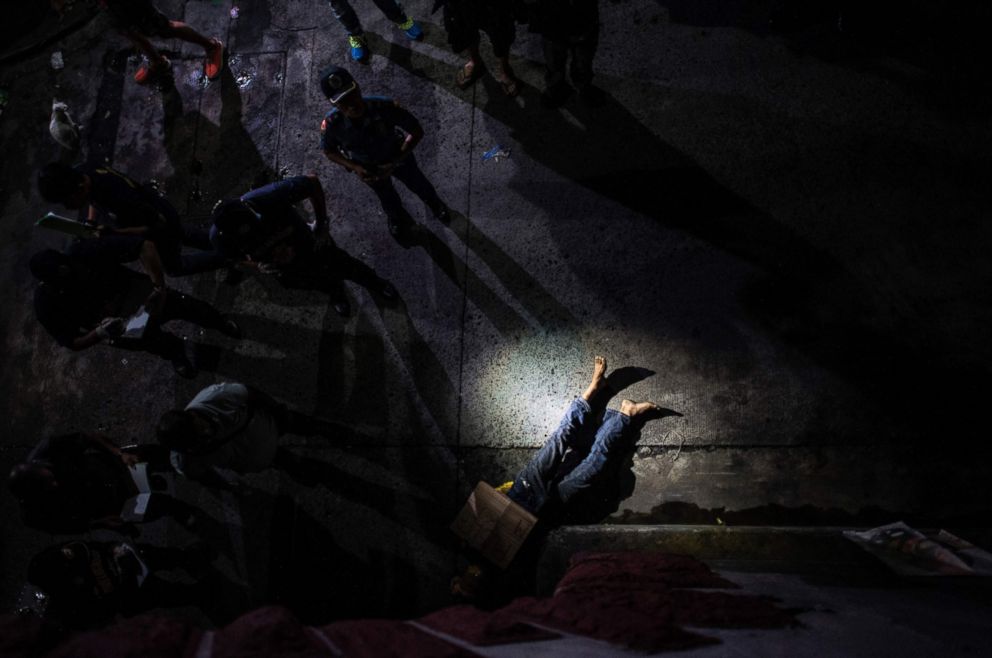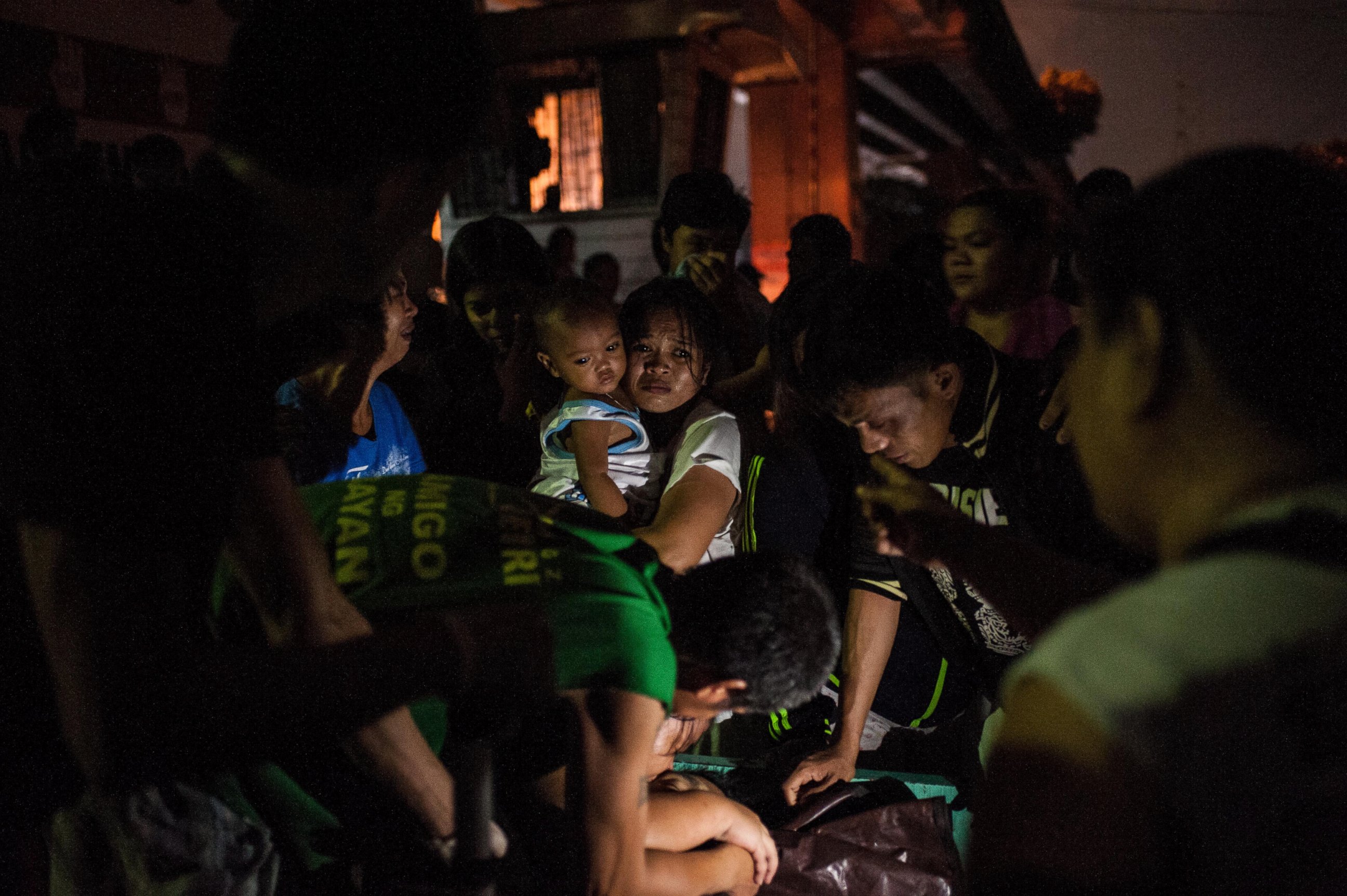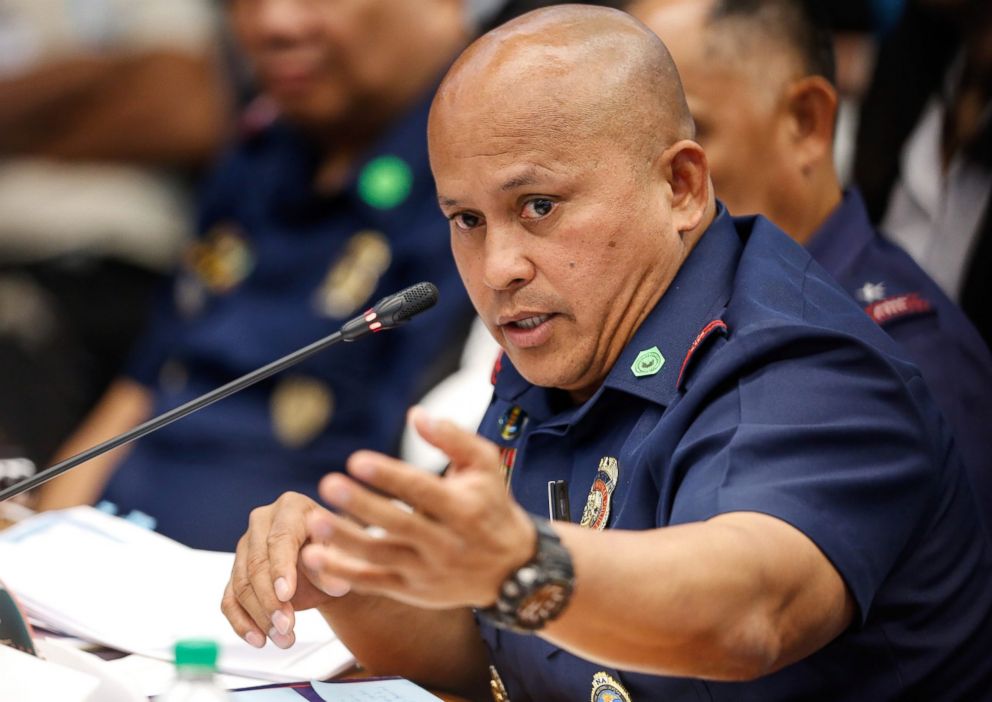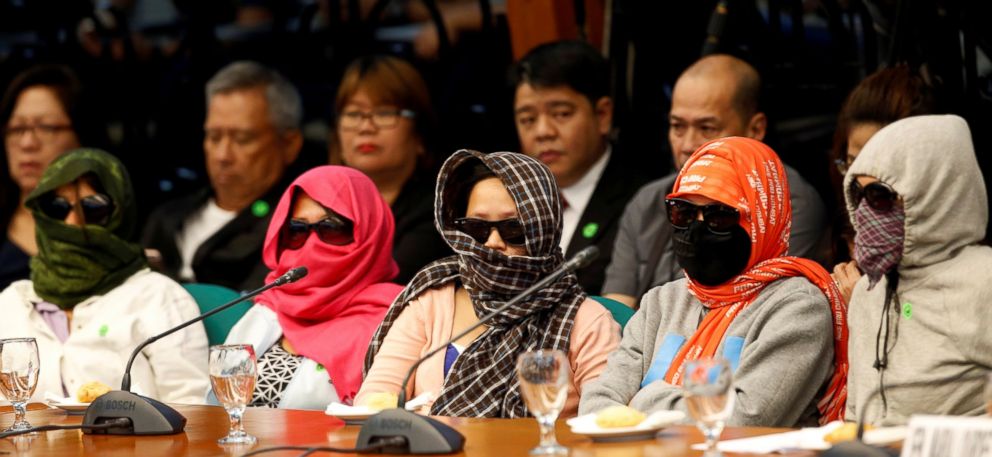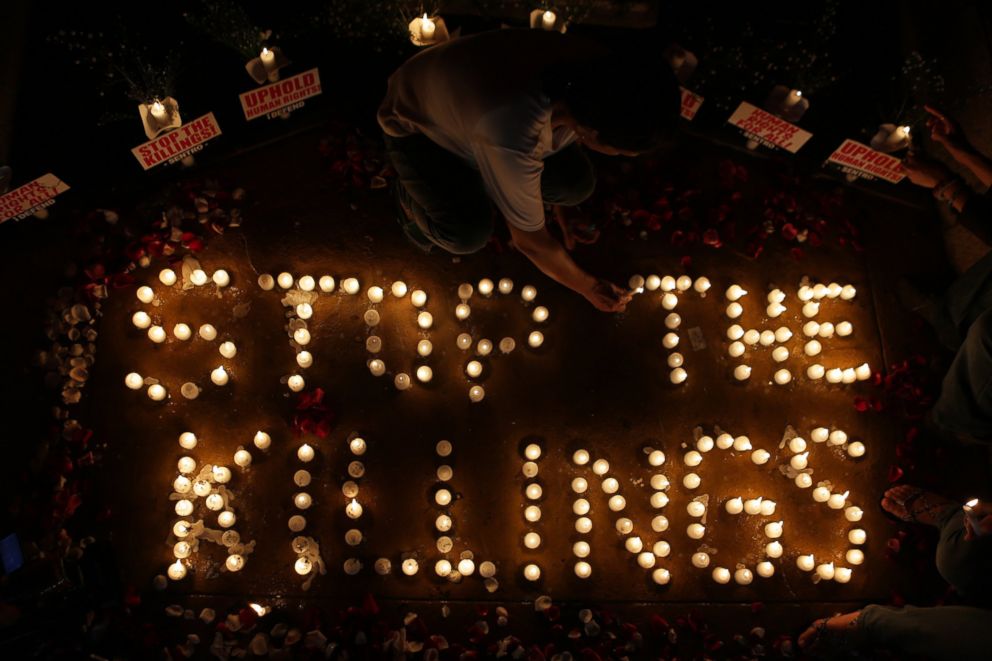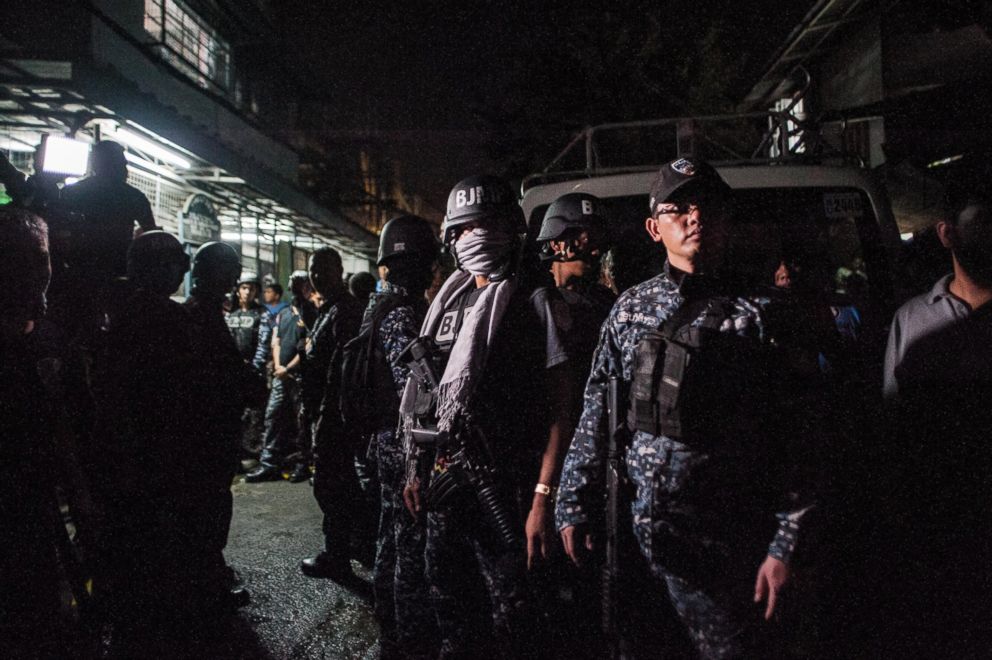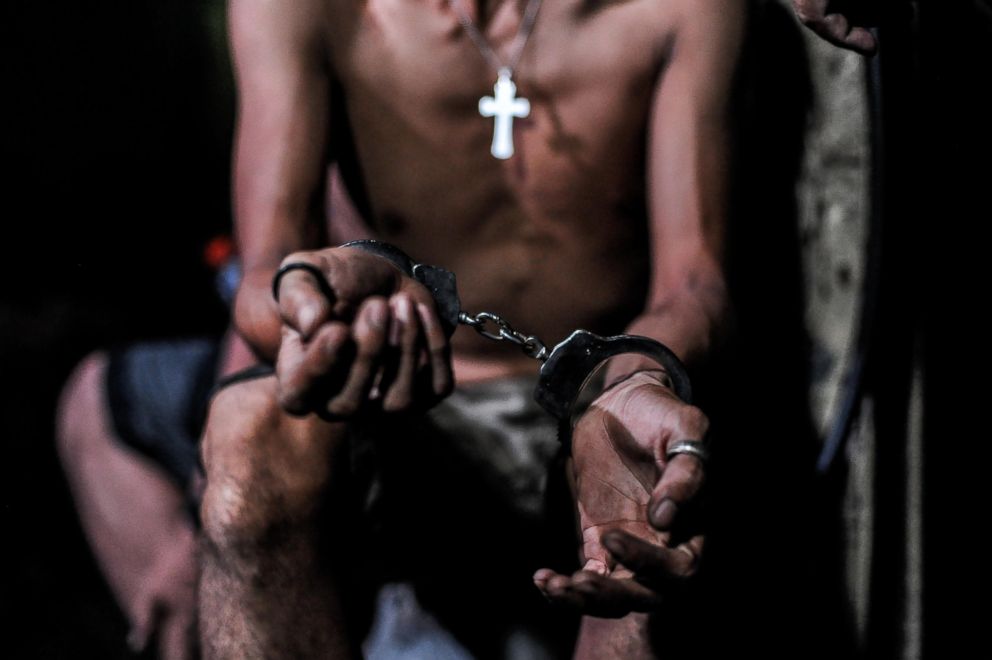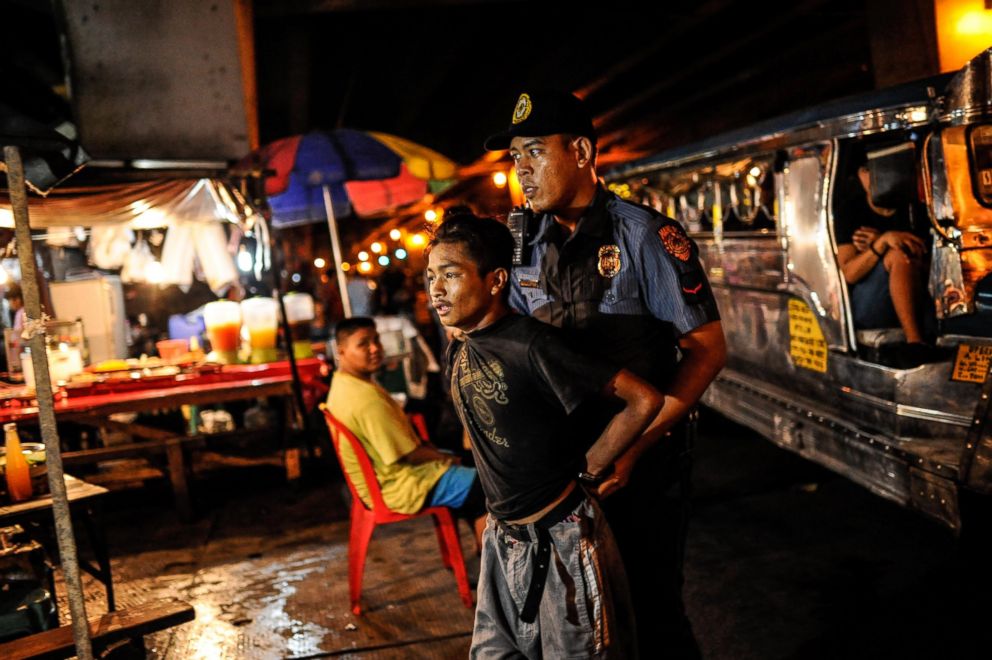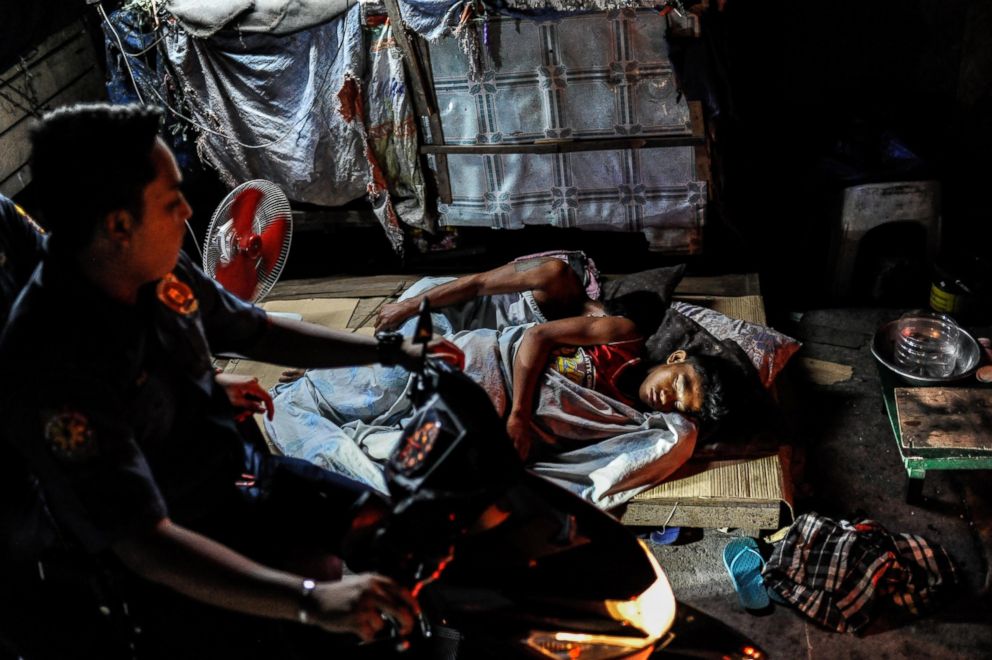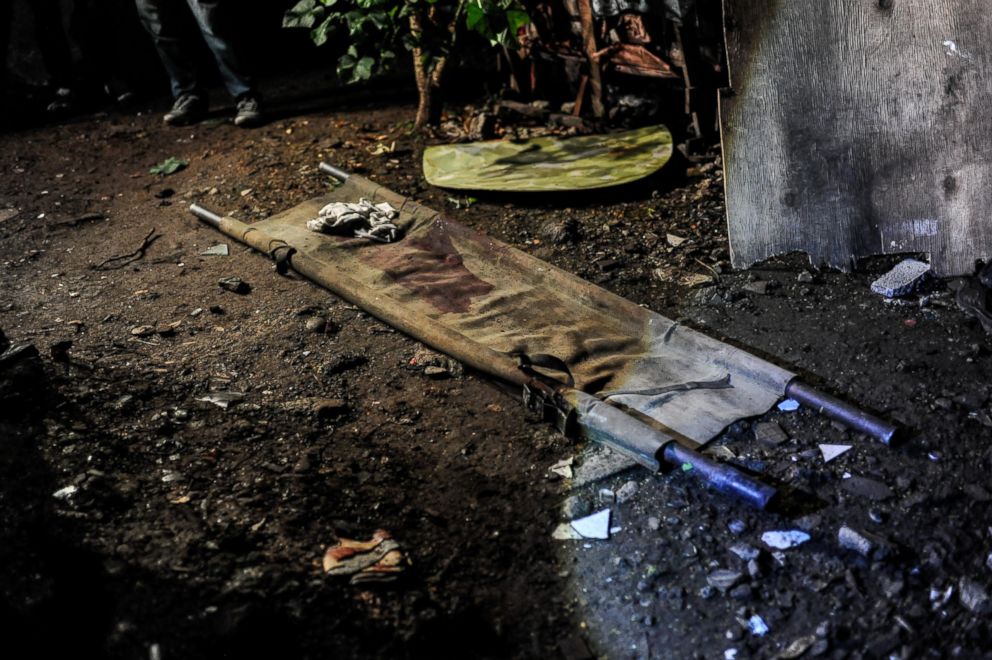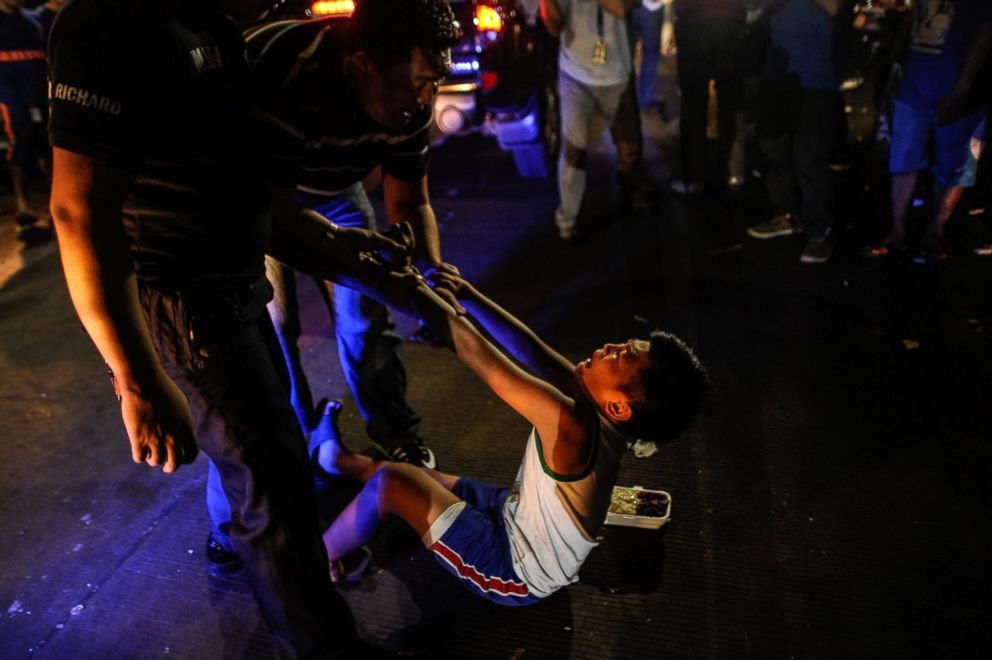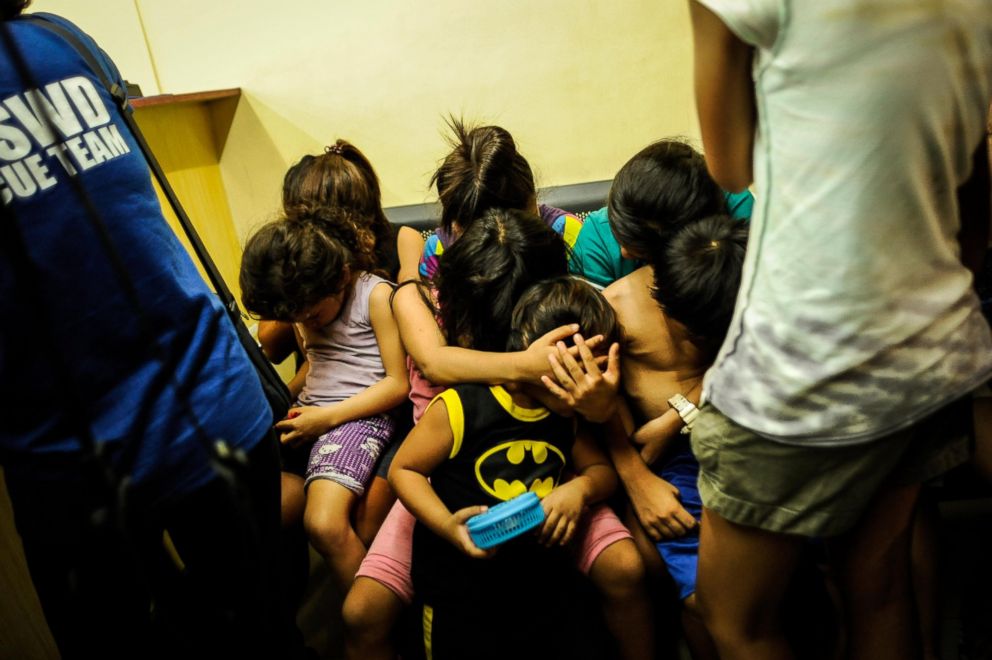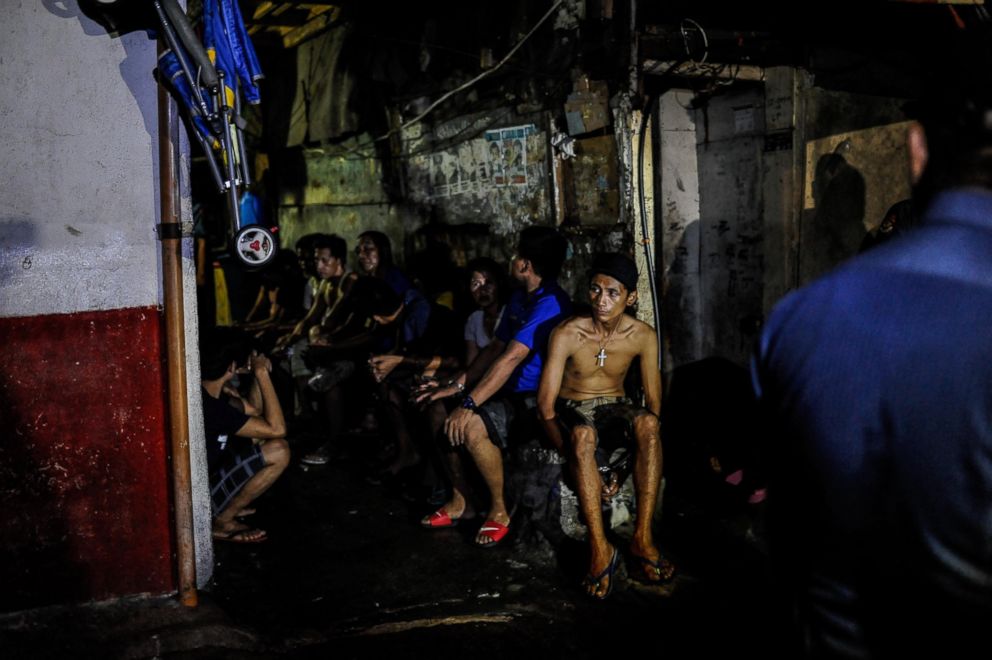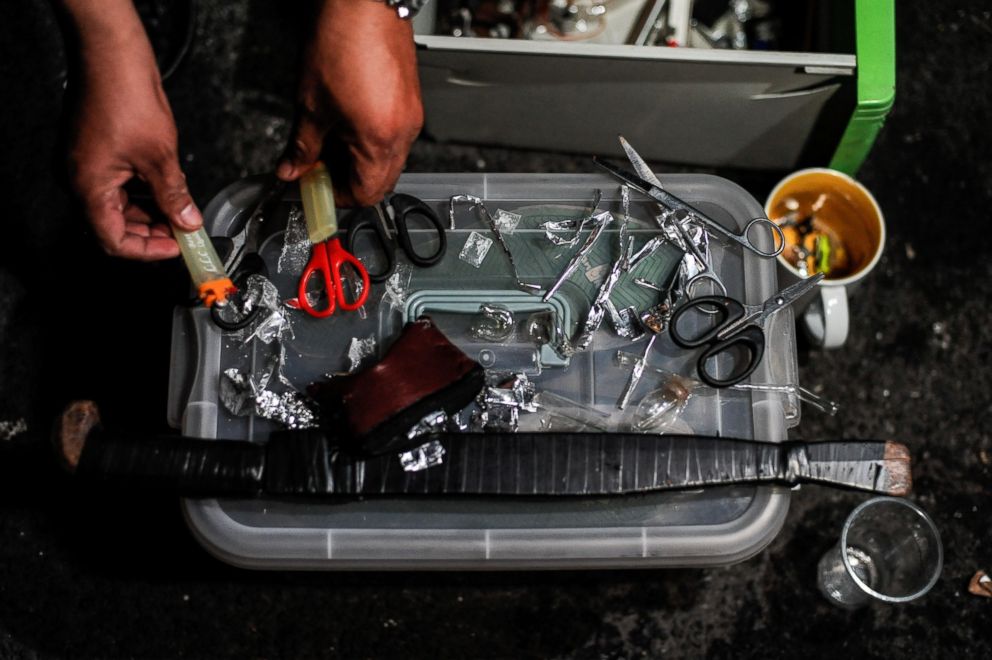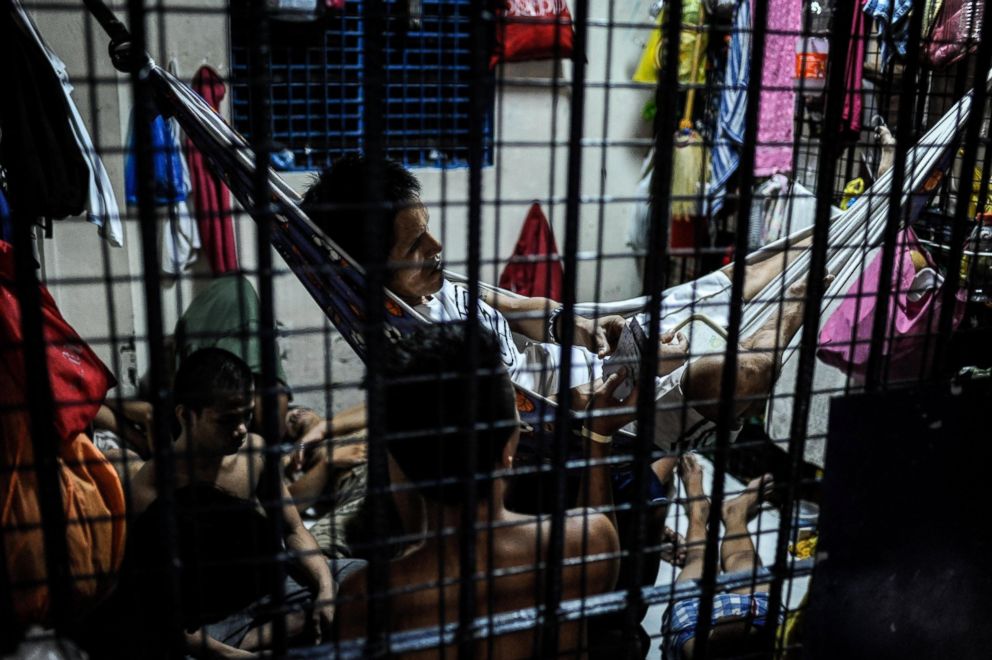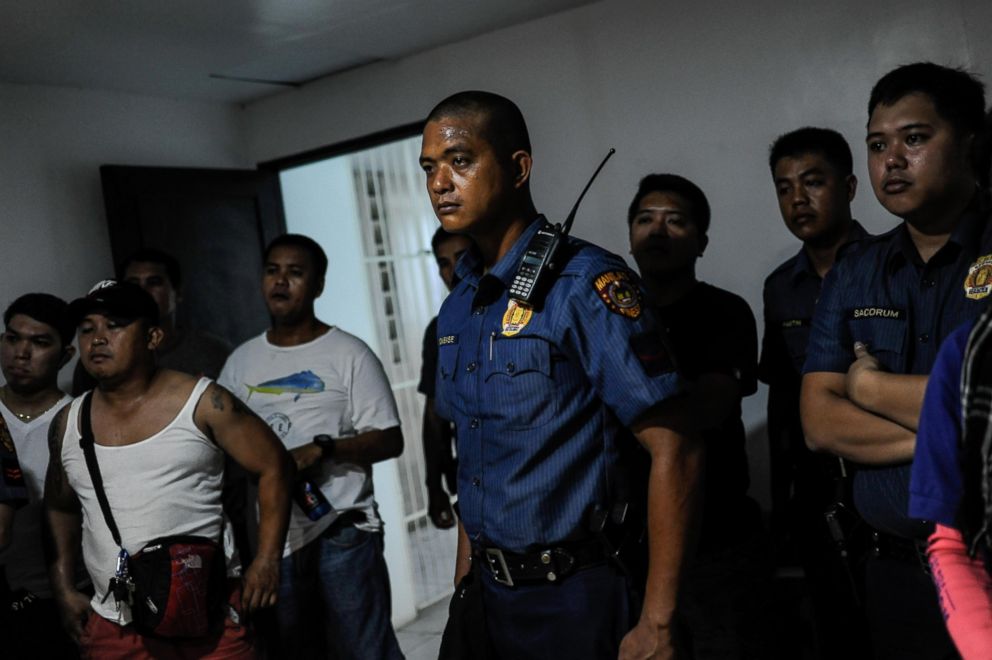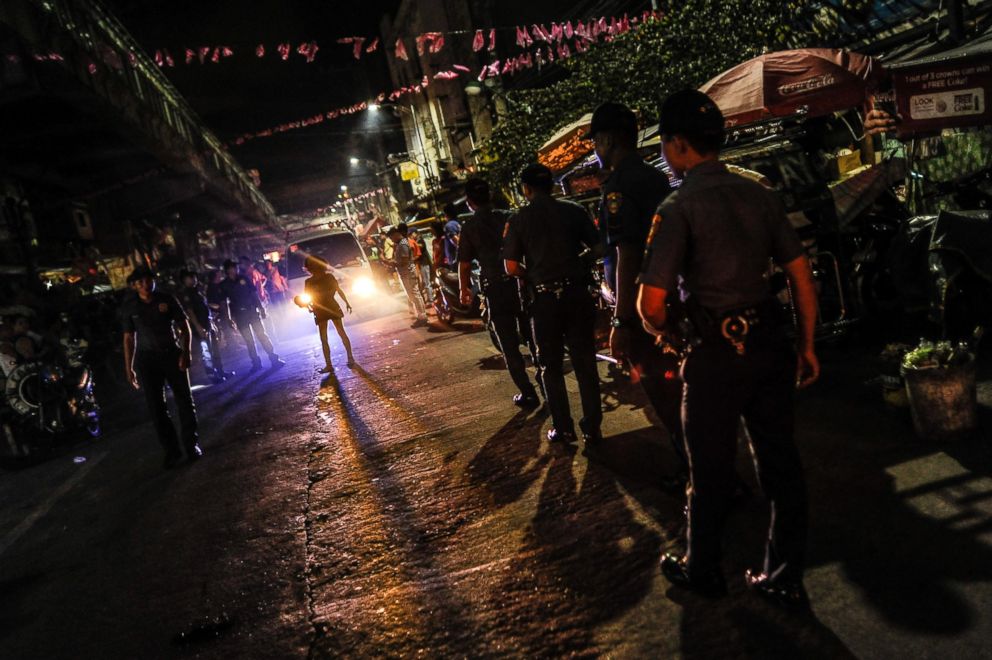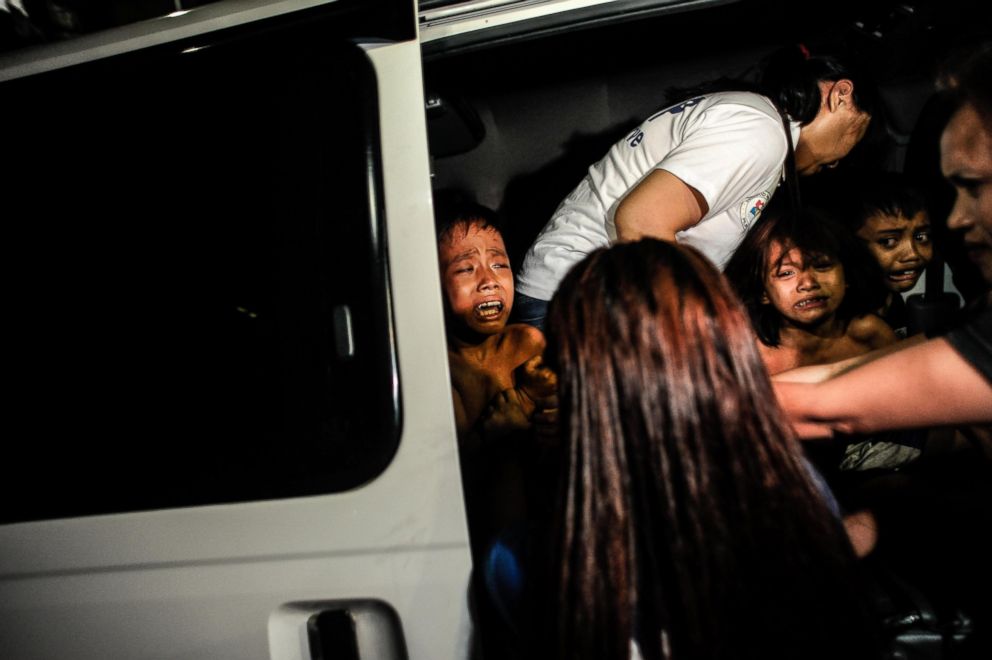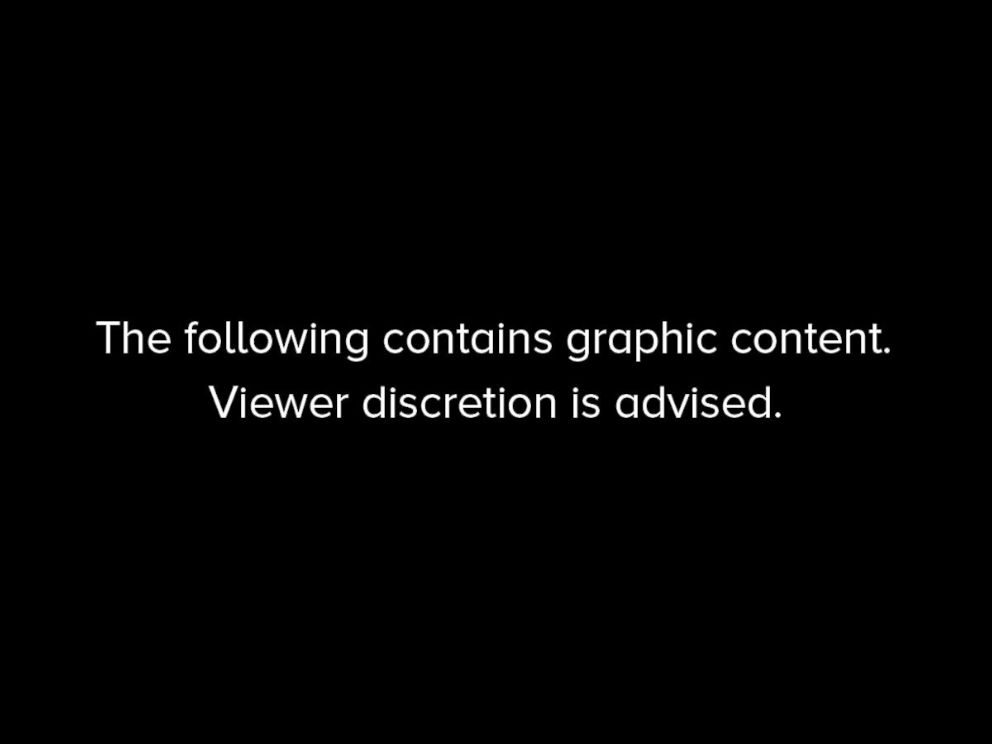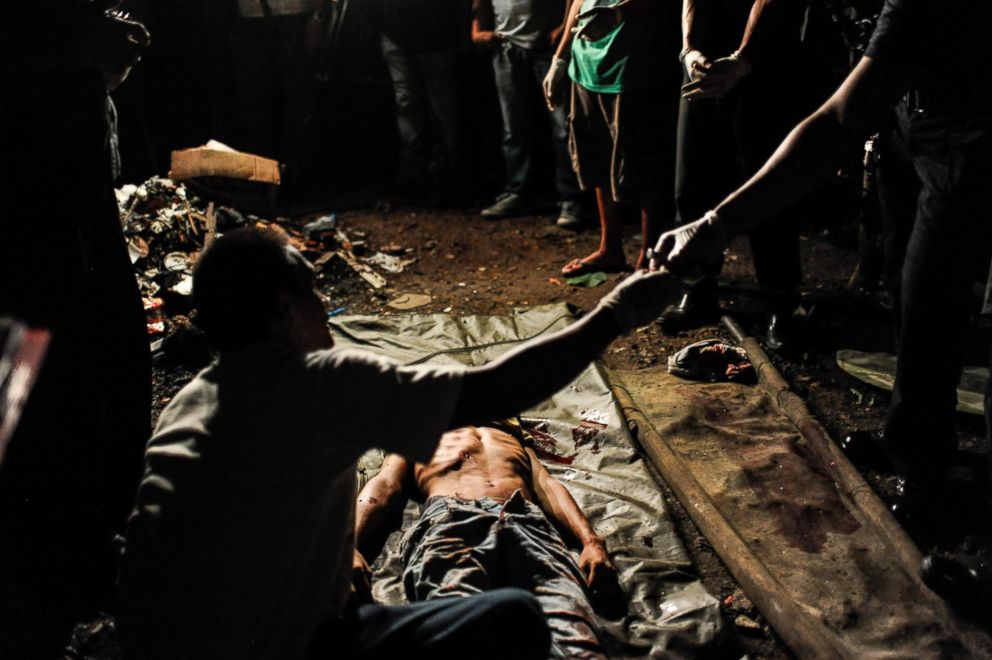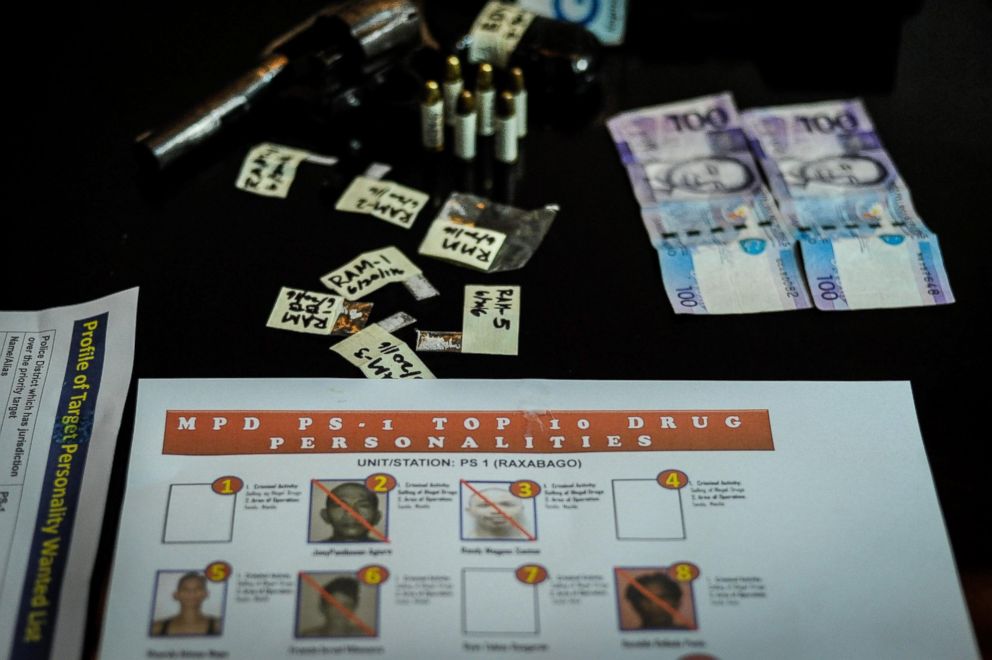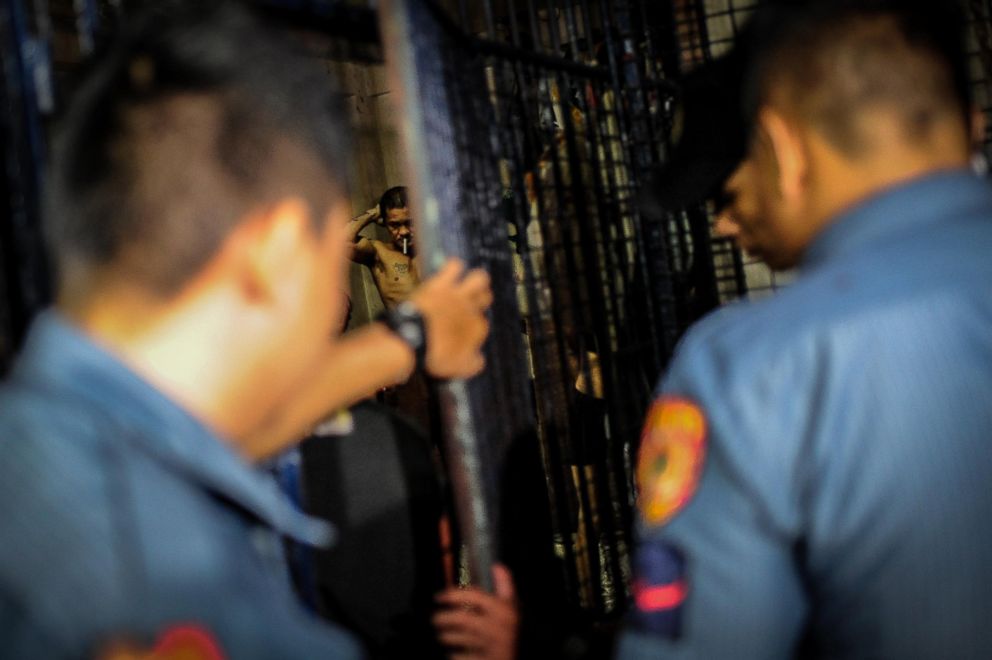Philippine President Duterte once compared himself to Hitler
President Trump has invited Duterte to the White House.
— -- He's compared himself to Hitler. He's vowed to wage a war on drugs via execution. He's threatened to cut all ties with the U.S. He swears like a sailor and has been nicknamed "the Punisher."
But he also created one of the safest cities in the Philippines when he was a mayor, and he oversaw the enactment of some of the country's first pro-LGBT, anti-rape and anti-religious-discrimination legislation. He had a Sunday talk show that people watched more than the news.
He's the ever-enigmatic Philippine President Rodrigo Duterte.
And now he's been invited to meet with President Trump at the White House. Trump spoke by phone to Duterte on Saturday — a conversation the White House described as "very friendly."
That description of their talk has raised eyebrows, as human rights group estimate Duterte is responsible for over 7,000 extrajudicial killings since he took office in June 2016, with many of the deaths linked to his campaign to get drug offenders off the streets.
The White House readout of Trump's conversation with Duterte said, "They also discussed the fact that the Philippines government is fighting very hard to rid its country of drugs, a scourge that affects many countries throughout the world."
White House chief of staff Reince Priebus defended Duterte's invitation, telling ABC's Jonathan Karl that a meeting between the two leaders would be important in the effort to confront North Korea and its nuclear program.
What does Duterte have against the US?
When he called President Obama "son of a b----" and told him to "go to hell," threatening to cut off ties with the U.S., Duterte propelled himself into the international spotlight and drew attention to his controversial leadership style.
The truth, however, is more complex than his comments might suggest.
Many Filipinos, like Patricio Abinales, a professor at the University of Hawaii and former Woodrow Wilson Center scholar who grew up on Duterte's home island of Mindanao, attribute Duterte's anger to a somewhat forgotten explosion in 2002. "People say he's never forgotten it," Abinales said.
American Michael Meiring took a homemade bomb into a hotel in Davao, a city in the southern Philippines where Duterte was the mayor at the time, and prematurely detonated it, injuring himself and ending up in a hospital, according to authorities. Duterte, along with the police waiting to question Meiring, were shocked when U.S. FBI operatives took Meiring out of the hospital and flew him out of the city without telling local officials, reportedly promising immigration documentation to hospital administrators for the favor.
According to a report on NPR's "Morning Edition," Duterte was furious and has held a grudge ever since.
"He's famous for holding grudges," Abinales said.
Mindanaoans suspected that Meiring was an undercover CIA operative working to destabilize Mindanao. According to the NPR report, the intelligence officer said, "I cannot say that's right, but I cannot also say that it's wrong."
Duterte in 2013 denied the U.S. permission to use Davao as a base for drone operations, citing the 2002 incident in his reasoning.
But his anger's roots may go deeper.
The U.S. colonial rule of the Philippines from 1898 to 1946, for starters. And Duterte was in college in the 1960s, when the U.S., embroiled in the Vietnam War, was using several bases in the Philippines because of its proximity to Vietnam. President Lyndon B. Johnson called for Philippine troops to join the effort. This caused a stir among Filipinos, who were mostly against that war.
One of the people who may have influenced Duterte is Jose Maria Sison, a former head of the Communist Party in the Philippines who was exiled from the country and is one of Duterte's mentors and friends. Sison, one of Duterte's professors during the Vietnam War, organized youth protesters against the war.
Duterte was a member of that protest movement formed by Sison, Kabataang Makabayan, according to ASEAN Today, which noted that the movement was "known for its anti-American imperialism stance."
Why is his leadership so controversial?
A Davao-based vigilante justice group, called the Davao Death Squad or Duterte Death Squad, was allegedly hired to aid in ridding the city of its criminals by shooting repeat offenders (drug dealers, murderers and rapists, among others) — with no time of day, demographic or setting off limits.
Killings have been reported on sunny afternoons, in churches, in mosques and outside police stations and grocery stores, often with young children as victims. But Duterte denies any involvement with the group.
Police wage war on drugs in the Philippines.
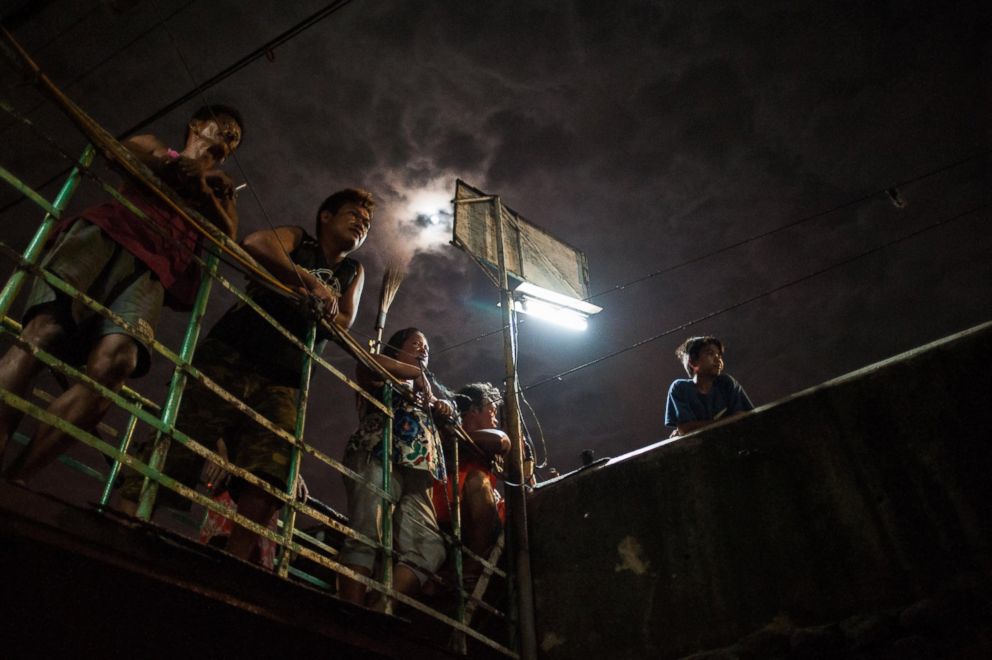
Regardless of his involvement or lack thereof, his policies and his time as mayor were marked by a tough-on-crime attitude, showing no mercy for local criminals.
"None of my children is using drugs," Duterte said in a presidential debate in Dagupan City in April. "But my order is, even if it is a member of my family, kill him."
In addition to his aggressive war on drugs, he has created controversy for harsh insults against the U.S. and other nations. In a speech in Manila last fall, he told Obama to "go to hell" for questioning his drug-fighting tactics. Duterte called Obama a "son of a b----" in other settings and threatened to break ties with the U.S. and look to China or Russia for trade instead.
In a Davao news conference, he likened himself to Hitler and vowed to kill millions of drug addicts.
"If Germany had Hitler, the Philippines would have," he said, pointing to himself. "There's 3 million drug addicts ... I'd be happy to slaughter them."
He has since apologized to Jewish communities.
Abinales said he is not so shocked by Duterte's swearing and insults. "It's how many Filipinos talk," Abinales said. "Especially local politicians."
And Davaoans like Duterte for it.
Eighty-three percent of Filipinos have "much trust" in him, according to the first polls on his presidency conducted by Philippine-based research nonprofit Social Weather Stations.
The highest approval rating, with 88 percent feeling "satisfied," is in Mindanao. Other regions are not much lower, with the Visayas at 75 percent and Metro Manila at 74 percent.
How did he come to power?
He was one of the longest-serving mayors in the history of the Philippines — seven terms, totaling over 22 years. When he came to power in 1987, the city of Davao was considered a murder and drug capital.
"In the '80s and '90s," Abinales explained, "not only were you scared because people were killing each other but also for the spread of drugs."
"Before he came to power, after President [Ferdinand] Marcos fell in the '80s, two things were happening in the city," Abinales said. "One was an emblematic increase in the drug trade."
Because Davao is the southernmost port of Mindanao, drug traders once used it as a sort of hub, moving drugs from nearby Indonesia, Malaysia and Vietnam.
"The second problem was that the Communist Party in the island split, and there was massive internal killing and torture," Abinales said, noting that Davaoans were fed up and welcomed Duterte's no-holds-barred crime fighting.
With Duterte at the helm, Davao's crime rate slowly but surely became one of the nation's lowest, transforming the city.
"There are only a couple of cities where you can walk around at any time of night and people stop at stoplights," Abinales said. "Davao is one of them. You can't do that in Manila."
Duterte's ascent to the presidency was welcomed by many Filipinos, who saw him as an exception to the corruption and damning ties that marked many local and national leaders and as a healthy middle ground between the establishment and its protesters; his father was a Cabinet secretary for Marcos, and his mother was an anti-Marcos human rights activist.
While Americans seeing controversial quotes might wonder how extrajudicial killings can be OK, Abinales said it makes sense for those who wanted their streets back.
"People are asking, 'Who doesn't want the drug addict or drug pusher killed?'" he said.
Duterte's brash rhetoric and harsh tactics have drawn comparisons to Trump. The difference, Abinales said, is Duterte's humility and disdain for press attention. He has turned down awards and nominations, like the World Mayor Prize, given by an international body to outstanding mayors, and he rarely gives interviews.
As mayor, he had a weekly television talk show, "Gikan sa Masa, Para sa Masa" ("From the Masses, for the Masses"), which drew more viewers than local news talk shows. He has announced plans to do the same as president. In his show, he addressed citizens' complaints and reports of corruption and even read out names of convicted criminals, who were often killed soon afterward.
In a 2015 episode before he decided to run, Duterte said to Davaoans, "God will weep if I become president."
ABC News' Elizabeth McLaughlin contributed to this report.
